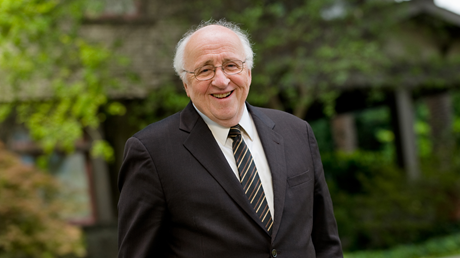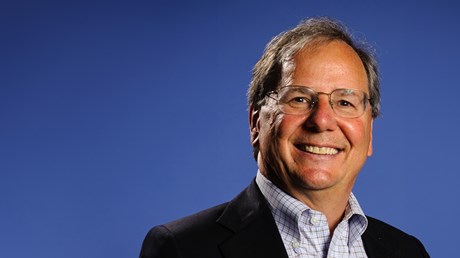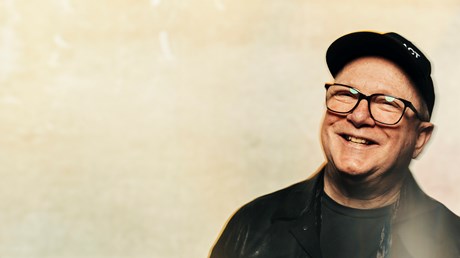Will you help encourage and connect the church?
Give NowWill you help encourage and connect the church?
Give NowChristianity Today employees love to write. That's no surprise. But what is surprising is how much they write, even outside work. Just in the past year, CT executive editor Andy Crouch published Playing God and Leadership Journal executive editor Skye Jethani's Futureville came out in January.
This month, Drew Dyck's book Yawning at Tigers: You Can't Tame God, So Stop Trying (Thomas Nelson) joins the lineup of titles by CT workers. The managing editor of Leadership Journal explores the paradox "that God is fully holy and completely loving." Drew talks about what led him to tackle this controversial topic and what he hopes readers will take from his book.
What inspired you to write this book?
I feared our view of God was becoming too casual, especially in the evangelical church. I was raised in the church—my dad was a pastor—and there's much to commend. But I remember friends who would talk about God as the "Big Guy Upstairs" and girls in youth group who would say, "I'm single right now because I'm dating Jesus." I didn't have the heart to tell them that dating Jesus would require him to divorce the church.
Also, worship has become very one-sided. It focuses almost exclusively on God's love. Obviously we need to be reminded of God's love, but I felt like the missing ingredient in many of the churches I visited and attended was God's holiness. I felt like we were losing sight of that paradox: that God is loving and holy. I wrote this book to try to do my little part in making sure we don't collapse one side of that paradox.
Your last book, Generation Ex-Christian, was geared toward those who love prodigals. Who is your ideal reader for this book?
It's probably not a book that would make a heck of a lot of sense to a non-Christian, although it would be wonderful if they picked it up. The hope is to give the average Christian a renewed appreciation for God's holiness.
I'm also targeting church leaders. Church leaders have a disproportionate influence on how Christians think and worship. I am thrilled to be getting some early feedback from pastors saying that they like the book and they are going to preach on this topic. It's a needed message.
The book contains some sharp critiques. Are you nervous about calling people out on this issue?
No, not really. It is a little controversial. I've already received a little bit of pushback because some people thought that I'm portraying God as being too harsh. But I don't fear that. There's good scriptural backing for what I'm saying. And at the same time, in the book, I don't want to be too hard on this person or that person because I see the same habits in myself. It's not like I've got this perfect, biblical, balanced view of God and the rest of you are missing it. I put myself firmly within this tradition that has wandered off into a very sentimentalized, casual view of God. And I see that in my own spiritual life in the way I think of God, worship God, and approach God.
I'm writing to myself as much as to other people and that's the stance I like to take. I'm not the expert who has it figured out, who's going to tell you exactly how it is. I'm going to explore something I've been learning about and hopefully there's something for other people as well.
This was a daunting subject for me to approach. In my first book, I wrote about a trend in the church so I could be the journalist and say, "This is what's going on." When you're writing about God and his holiness, it's intimidating. You're never going to get it perfect. You're never going to be comprehensive. I really wanted to pray and study and meditate on God's Word and to ask God, What would you have me say on this topic that people need to hear?
Your book draws from many different sources. It doesn't come across as simply "This is what I think."
There's been so much written about this topic throughout church history that you want to try to draw on early Christian writers and people outside of your culture. There's nothing truly original when you're writing a book. But my hope was to take a topic that's usually handled in more academic ways. You read about God's holiness and sovereignty in systematic theology text books; I wanted to try to talk about it in a way that was accessible, that can challenge and inspire a Christian who hadn't been to seminary as well as those who have.
What should people know before reading your book?
A lot of people think that this is all about God's holiness, his wrath—the sort of harsher elements of God's nature. But if we don't appreciate his holiness in the first place, his love doesn't mean as much. Once we grasp how majestic and great God is, then we realize that it is truly amazing that he loves, that he found a creative and costly way to show us that love and to bridge the gap between us. That's what I want people to take away. I'm not trying to minimize God's love; I'm trying to magnify it.
Elissa Cooper is assistant editor of Christianity Today magazine.








